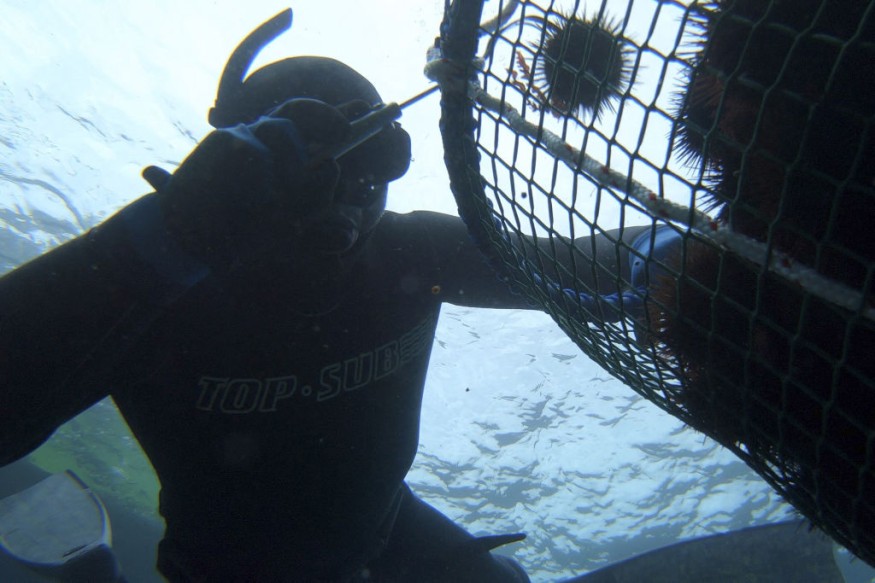Sea urchin's health can deteriorate due to prolonged exposure to rainy conditions, according to the latest report. Researchers also discovered that salinity changes can have impacts on sea urchins.
Sea urchins play a significant role in marine ecosystems recognizable by their spiny and round appearance. They can survive in the depths of oceans. They are believed to stay on earth for about 465 million years despite climate change effects and environmental changes.
The species of sea urchins are found in different parts of oceans, including in shallow waters. Their population is threatened by the following:
- climate change
- salinity changes
- diseases
- pollution
According to reports, sea urchins are crucial for the survival of algae and corals. Coral reefs can become more resilient due to the sea urchins. However, sea urchin outbreaks can unfold due to reduced competition and lack of predators in oceans.
Sea Urchins Can Suffer From Health Deterioration

In the latest report, researchers monitored the potential physical deterioration of sea urchins due to exposure to rain and seawater. The research findings were published in the Journal of Experimental Biology.
The report also emphasized that reduced seawater salinity could impact the ecophysiology and bring behavioral changes in sea urchins. Researchers discovered that short-term exposure could affect the health of said species.
For the brackish water organisms, salinity plays a crucial role in their existence. Scientists, from the Scottish Association for Marine Science, the University of Cambridge and the British Antarctic Survey, conducted the study.
Changes in habitats can become more challenging for sea urchins to adapt and survive amidst the problems of climate change and rising temperatures. Understanding the stressor impacts is important to help protect sea urchins from population decline.
In the UK, researchers raised concerns about the extreme weather conditions. Increasing precipitation has been recorded in Scotland since the 1960s.
For instance, the researchers noted that salinity will become affected by glacial melting and increased rainfall. Understanding the future scenarios will offer new insights into the protection of coral reefs and the sea urchin population.
Exposure to diluted seawater can significantly affect the species physical conditions. According to reports, sea urchins can suffer from health decline, becoming more sluggish with spine loss. The species can also experience stressful situations.
Researchers raised concerns about the impacts on ecology and the long-term survival of sea urchins.
Crab-Eating Sea Otter Helping in California
In the latest report, researchers found that crab-eating sea otters could save California's marshland from decline due to erosion. The study report was published in Nature Journal.
The said animals are considered natural engineers, helping to reduce the erosion in marshland areas in California.
Related Article : EU Proposes to Downgrade Wolves Protection Status to 'Protected' as Their Population Doubles in Europe
For more similar stories, don't forget to follow Nature World News.
© 2025 NatureWorldNews.com All rights reserved. Do not reproduce without permission.





